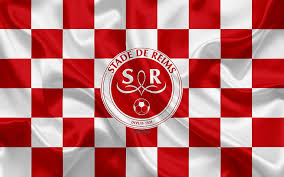The Stade Auguste Delaune is more than just a football stadium; it is a sacred ground where history, passion, and community converge. As the home of Stade de Reims FC, it has witnessed countless legendary moments that have defined French football.
The History and Evolution of Stade de Reims FC
Constructed in 1935, Stade Auguste Delaune has undergone multiple renovations to meet modern standards while preserving its historic charm. Originally built to accommodate the growing popularity of football in Reims, its evolution reflects the city’s commitment to sporting excellence Go8.
Over the decades, the stadium has seen various upgrades, including expanded seating, improved facilities, and enhanced safety measures. The 1990 renovation, in particular, modernized the structure, making it suitable for international competitions and large-scale events. Despite these changes, the stadium retains an intimate ambiance that fosters close connections between players and supporters.
Its architecture combines traditional French stadium design with contemporary features, blending history with functionality. The stands envelop the pitch in a passionate embrace, creating a vibrant atmosphere that energizes the players and intimidates visiting teams. The stadium’s design facilitates excellent visibility, ensuring fans can experience the game up close and personal.
Key Features and Atmosphere of Stade Auguste Delaune
Stade Auguste Delaune can accommodate approximately 21,000 spectators, offering an electric environment during matches. Fans are known for their unwavering support, creating a sea of red and white that encapsulates club pride. The passionate fan groups, including Suanderie and Ultras Reims, contribute to a lively and intimidating atmosphere that often earns praise from visiting teams and commentators.
The stadium’s acoustics amplify chants, drums, and cheers, transforming the venue into a cauldron of football fervor. During derbies and important fixtures, the collective energy elevates players’ performance and fosters an unbreakable bond between the club and its supporters.
Beyond hosting Stade de Reims FC matches, Stade Auguste Delaune also serves as a community hub, hosting youth tournaments, local events, and charity functions. It functions as a cultural landmark, reinforcing the city’s identity and sporting spirit.
The Stadium’s Role in Supporting Club Goals
The Stade Auguste Delaune is essential in the club’s strategic ambitions for success, fan engagement, and community development. Its facilities support training programs and youth development initiatives, ensuring the long-term sustainability of Stade de Reims FC.
High-quality infrastructure enables the club to host competitive matches at a professional standard, attracting scouts, sponsors, and visiting teams. The stadium also plays a pivotal role in fostering local pride and cultural cohesion, strengthening the social fabric of Reims through sport.
Moreover, the club’s ongoing investments into Stade Auguste Delaune signal their commitment to excellence and community service. As Stade de Reims FC continues to aim for domestic success and European glory, their home ground remains a powerful symbol of ambition, tradition, and heartfelt support.
Recent Performance of Stade de Reims FC
In recent years, Stade de Reims FC has worked diligently to rebuild their stature within the fiercely competitive Ligue 1. Their performance each season reflects their resilience, tactical growth, and the evolving landscape of French football.
Performance Trends Over the Last Five Seasons
In the last five seasons, Stade de Reims FC has experienced a rollercoaster of results, oscillating between mid-table safety and ambitions of European qualification. Their most notable achievement was finishing in the top six in the 2018-2019 season, qualifying for the Europa League, which marked a significant step forward from their previous campaigns.
Their tactical approach under different coaches has evolved, emphasizing defensive solidity combined with quick counter-attacks. Consistency has been a challenge, but recent seasons show signs of stabilization due to strategic signings and youth integration. Their ability to adapt tactically has been pivotal in gaining competitive advantages and maintaining their status as a formidable Ligue 1 side.
Statistically, the team has maintained solid defensive records while striving to improve goal-scoring outputs. Their home form has remained resilient, often earning points against top rivals, which is indicative of their tactical discipline and fighting spirit.
Key Match Performances and Player Contributions
Recent seasons showcase some memorable performances that defined the club’s upward trajectory. Wins against top teams like Paris Saint-Germain and Olympique Lyonnais not only boosted morale but also signaled their intentions to challenge stronger opponents.
Key players such as Marshall Munetsi, Moussa Doumbia, and Folarin Balogun have risen to prominence, contributing crucial goals and assists. Their collective effort highlights the importance of cohesive team dynamics and tactical execution. The emergence of young talent has been instrumental in encouraging a sustainable development model that balances experienced leadership with youthful exuberance.
The leadership of manager Will Still has been praised for instilling tactical versatility and resilience. Their recent campaigns reflect a team that is gradually solidifying its European ambitions, driven by strategic investments, a committed fan base, and a pragmatic approach to modern football challenges Game quay hũ đổi thưởng.
Overcoming Challenges and Building for the Future
Despite their recent advances, Stade de Reims FC faces ongoing challenges such as financial constraints and fierce competition from bigger clubs. However, their resilience, youth development focus, and community support continuously nurture optimism about the club’s future.
The club is actively investing in infrastructure upgrades, scouting networks, and youth academies to ensure sustainable growth. Their recent performances demonstrate an ability to adapt and innovate, key qualities needed for long-term success in Ligue 1 and beyond.
Looking ahead, Stade de Reims FC aims to establish itself firmly among France’s elite clubs again, aiming for continental success and North Star ambitions. Their recent performance underscores the club’s potential when coupled with strategic foresight and unwavering dedication.
